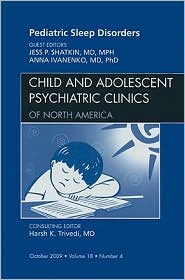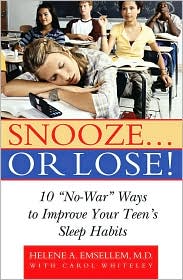Dear Mother- The question is, should they? Adolescent sleep deprivation research has shown the problem causes teen memory and information-processing deficits, irritability, decreased creativity and diminished ability to handle complex tasks.
Adolescents need more, not less sleep. Teens need nine hours sleep per night to avoid behaviors associated with sleep deprivation. Risks associated with this teen problem include mood and behavior problems, increased potential for drug and alcohol use, and vulnerability for accidents. In fact, National Sleep Foundation researchers found that the majority of fall-asleep driving accidents are caused by young people.
 The researchers also found that 20 percent of all high school students fall asleep in school (Maas, 1995) and that the symptoms of sleep deprivation are worse in earlier starting schools (Allen, 1991). A Minnesota study of 7,000 teenagers revealed that students in schools that switched starting time to 8:40 a.m. from 7:15 were less sleepy during the day, earned slightly higher grades and had fewer depressive feelings and behaviors.
The researchers also found that 20 percent of all high school students fall asleep in school (Maas, 1995) and that the symptoms of sleep deprivation are worse in earlier starting schools (Allen, 1991). A Minnesota study of 7,000 teenagers revealed that students in schools that switched starting time to 8:40 a.m. from 7:15 were less sleepy during the day, earned slightly higher grades and had fewer depressive feelings and behaviors.

 Additional weekend sleep to compensate for sleep lost during the weekdays does not ameliorate the negative effects. Not surprising, students who lack sufficient sleep have poorer grades. As I read through the research, I wondered how much of the teen “illnesses” confronted by school nurses and behavioral problems dealt with by parents, assistant principals, counselors, and the courts could be avoided if teens got adequate sleep.
Additional weekend sleep to compensate for sleep lost during the weekdays does not ameliorate the negative effects. Not surprising, students who lack sufficient sleep have poorer grades. As I read through the research, I wondered how much of the teen “illnesses” confronted by school nurses and behavioral problems dealt with by parents, assistant principals, counselors, and the courts could be avoided if teens got adequate sleep.
 The natural order dictates that the teenage circadian rhythm be arranged differently- their biological clock signals them to both fall asleep and wake up later. The brain hormone melatonin is produced later at night than it is for kids and adults, thus making it difficult for teens to fall asleep earlier.
The natural order dictates that the teenage circadian rhythm be arranged differently- their biological clock signals them to both fall asleep and wake up later. The brain hormone melatonin is produced later at night than it is for kids and adults, thus making it difficult for teens to fall asleep earlier.
 |
| Learn more |
Adolescents need more, not less sleep. Teens need nine hours sleep per night to avoid behaviors associated with sleep deprivation. Risks associated with this teen problem include mood and behavior problems, increased potential for drug and alcohol use, and vulnerability for accidents. In fact, National Sleep Foundation researchers found that the majority of fall-asleep driving accidents are caused by young people.
 |
| Learn more |
Walk into any first-period high school classroom and it's obvious:
teenagers are exhausted. Sleep deprivation is an epidemic as widespread as
obesity and just as damaging. Sleep deprivation affects the lives of more
than 41 million adolescents in the United States alone. Yes, it is a
chronic problem for kids today. We know this intuitively as we watch teenagers
frantically juggle a hectic social calendar with the overwhelming demands of
school, work, and chores.School performance around the country is suffering but
it's not just grades that are at risk. Sleep deprivation has been found to
affect nearly every aspect of a teenager's life, from emotional stability and
behavioral issues to physical well-being and the potential for drug and alcohol
abuse.
For years, we've blamed many of these adolescent characteristics on the
natural maturing process or changing hormones. And while chemicals do surge
through the body creating strong effects, sleep and the right amount and the
right kind has now been targeted for its prime importance in overall success and
well-being.
 |
| Learn more |
Related Posts:
Robert Morton, M.Ed., Ed.S. has retired from his positions of School Psychologist and adjunct professor in the School of Leadership & Policy Studies at Bowling Green State Univeristy. Contact him on the secure Contact Form



